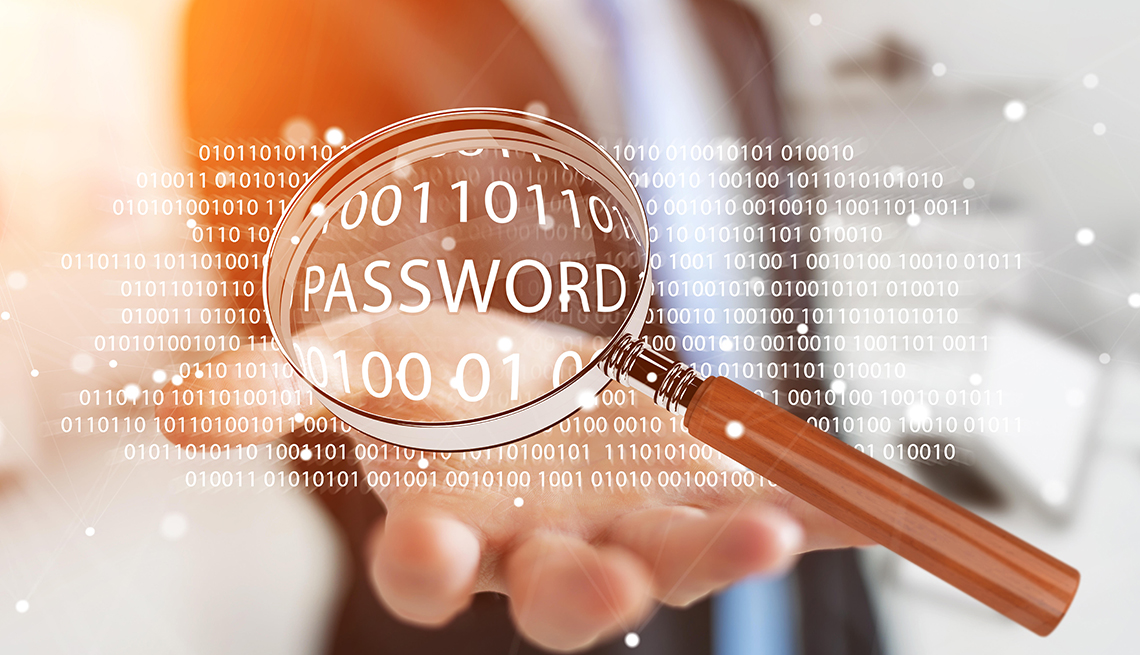AARP Hearing Center

Americans aren’t valuing their own digital identity
Americans spend an increasing amount of time online to shop, manage their money and engage in social media. Yet many are not always careful to protect their digital identity from being compromised, a new AARP survey finds.
To maximize safety online, security experts suggest people use unique passwords for their accounts, freeze their credit—not just when suspicious activity surfaces—and set up online access to their bank and credit card accounts to monitor them. AARP’s national survey of about 2,000 adults, however, finds that most are not taking these steps, leaving themselves vulnerable to fraud.
In the survey, AARP quizzed adults by asking eight questions intended to gauge how savvy they were about managing their digital identity. Nearly three-quarters (73%) failed the quiz, answering half or fewer of the questions correctly.
What’s the password?
One of the simplest ways to guard against online theft is to use a variety of passwords.
Nearly half (48%) of Montana adults have used the same password for more than one online account. Younger adults are more likely to do this than older adults (18-49: 52%; 50-64: 46%; 65+: 45%).
Guarding against fraud
Nearly half of adults (47%) report noticing fraudulent charges on their credit or debit card, yet very few (14%) have ordered a security freeze on their credit. While not a guarantee against fraud, experts recommend ordering such a freeze as a worthwhile step toward securing your accounts.
Many Americans, in fact, may not become aware of fraudulent activity until much later than they might otherwise. The survey finds that many have not set up online access to their financial accounts, which is critical for spotting any unusual activity that might signal digital identify theft.
Many Montana adults have not set up online access to their financial accounts.
Only four in 10 (43%) Montana adults have online access to all of their bank accounts, with those age 18-49 (50%) being more likely than older adults (50-64: 35%; 65+: 38%) to have access to all of their bank accounts. About one in five (19%) Montana adults have not set up online access to any of their bank accounts.
Three in five (61%) Montana adults with credit card accounts have online access to all of their credit card accounts. Those age 18-49 (69%) are more likely than older adults (50-64: 58%; 65+: 52%) to have online access to all of their credit card accounts. A fifth (21%) have not set up online access to any of their credit card accounts.
The survey covers credit cards specifically, as they relate to online access. On that front, 57% of adults with credit card accounts have online access to all of their credit card accounts. Those age 18-49 (70%) are more likely than those age 50-64 (52%) as well as those 65+ (37%) to have online access to all of their credit card accounts. The survey finds that about one in five (21%) have not set up online access to any of their credit card accounts.
Being cautious on social media
AARP also asked adults about Facebook habits that can expose them to digital identity theft. The results show 43% of Americans age 18+ who are active on Facebook have used their Facebook account to log in to other accounts. This practice is higher among younger adults. Half of those age 18-49 and 35% of adults age 50-64 signed on to other accounts via Facebook. Among 65+ respondents, just 29% followed this practice.
More than six in 10 Facebook users age 18+ report having changed at least some of their privacy settings from the default settings to guard against unwanted access to their information. Here, older respondents were not as proactive. Those age 65+ (39%) are less likely than both those age 50-64 (56%) and 18-49 (73%) to have taken this precaution.































































